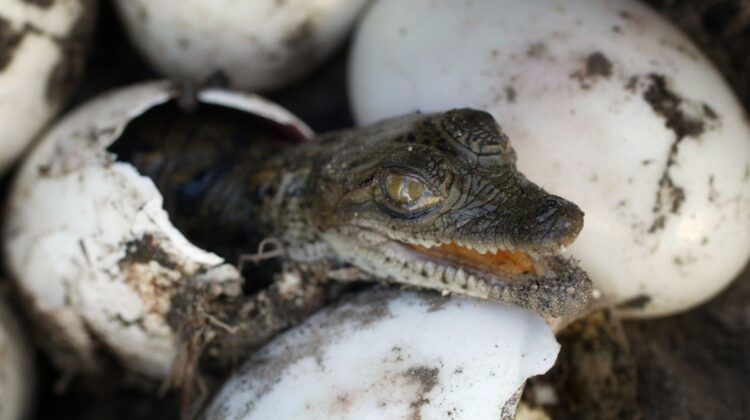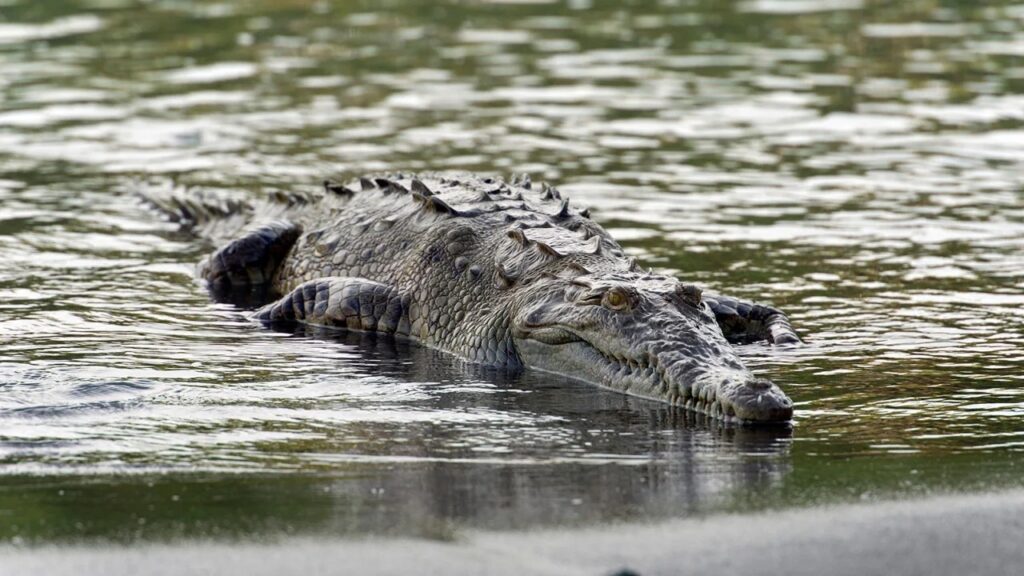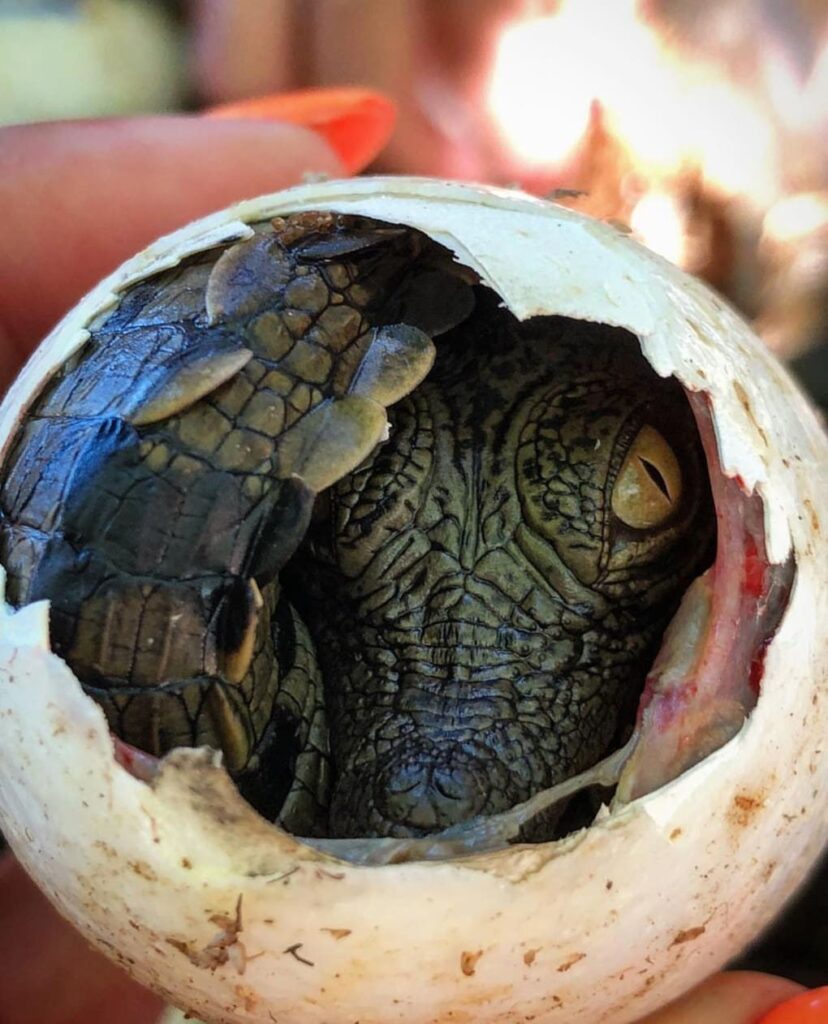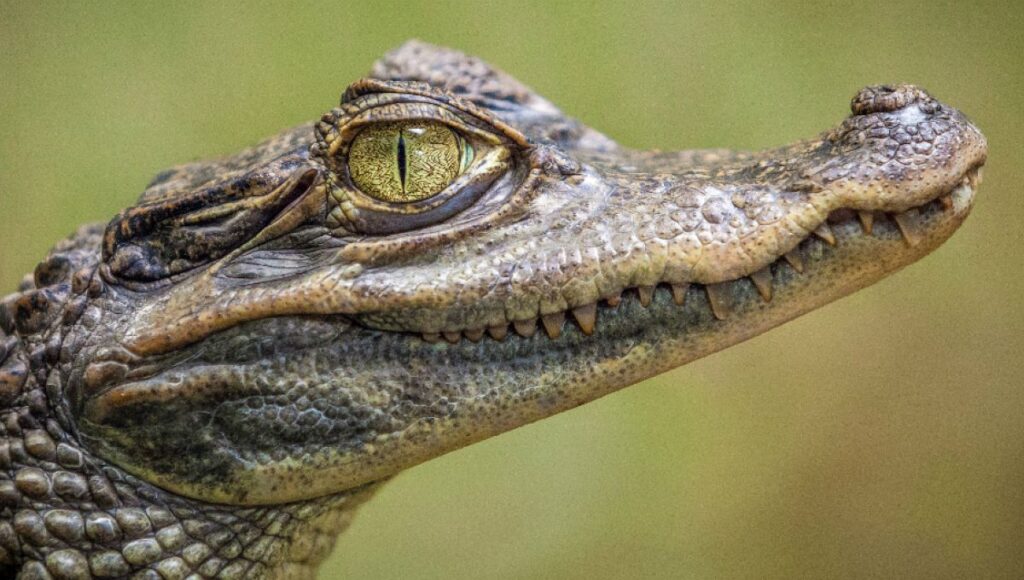
In a groundbreaking revelation, scientists have unveiled the astonishing occurrence of the first-ever documented “virgin birth” in a female crocodile. This extraordinary event took place within the confines of Reptiland Park, a renowned zoo located in Costa Rica, where a solitary crocodile had resided in captivity for an impressive span of 16 years without any interaction with a male counterpart.
The unexpected turn of events transpired in 2018 when the crocodile astonished her caretakers by laying a total of 14 eggs within her compound. Intriguingly, half of these eggs displayed signs of fertility, prompting the researchers to employ artificial hatching techniques, as detailed in a recent study. However, despite their meticulous efforts, the passage of three months revealed that none of the eggs had hatched, leading the scientists to make a crucial decision—to open them for further examination.

Upon delicately cracking open the eggs, the researchers were met with a surprising revelation. While six of the eggs were devoid of any significant findings, one particular egg contained a fully developed fetus, albeit lifeless. The fetus was subsequently subjected to genome sequencing, and the results were nothing short of extraordinary. Astonishingly, the genetic analysis indicated that the fetus possessed a staggering 99.9% genetic similarity to its mother, devoid of any trace of paternal genes.
The scientific phenomenon underlying this unprecedented occurrence is known as parthenogenesis, a process that has previously been observed in various species such as birds, reptiles, and elasmobranchian fish. However, until this groundbreaking discovery, no instance of parthenogenesis had ever been recorded in crocodiles, making this finding a truly remarkable revelation for the scientific community.

The implications of this extraordinary revelation extend far beyond the realm of crocodiles alone. The existence of parthenogenesis within this species raises significant questions regarding the potential occurrence of asexual reproduction in other reptilian creatures, including dinosaurs and pterosaurs. If crocodiles, with their complex genetic makeup and evolutionary history, can undergo parthenogenesis under specific circumstances, could this biological phenomenon have played a role in the reproduction of ancient reptiles that once roamed our planet?
While the scientific community grapples with these newfound questions, the discovery of the first-ever documented virgin birth in a crocodile represents an exciting milestone for evolutionary biology. It serves as a reminder that nature continues to captivate us with its intricacies, offering glimpses into the mysteries that lie beneath the surface of our understanding. As researchers delve deeper into the study of parthenogenesis and its potential implications, we may uncover even more astonishing revelations about the reproductive mechanisms that shape the animal kingdom.

In the world of science, it is often said that the only constant is change. The discovery of the first virgin birth in a crocodile serves as a testament to the ever-evolving nature of our knowledge, pushing the boundaries of what we thought was possible. As we continue to unravel the mysteries of life, one thing is certain—nature will continue to surprise and inspire us with its remarkable wonders.

Leave a Reply